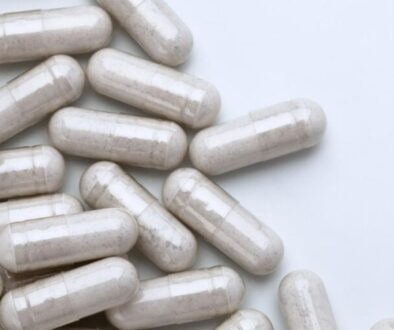9 Science-Backed Health Benefits of Probiotics

Published September 3, 2021
Probiotics are currently gaining attention for their supposed health benefits. Even a quick search on the web will give you hundreds of articles discussing the health benefits of probiotics. But what exactly are probiotics? Do they really make an impact on our health?
As of now, more studies are needed to fully understand how probiotics affect our bodies. But most of the scientific studies and clinical trials that have been conducted so far have yielded very promising results. This means that probiotics, for the most part, are beneficial for us.
Still, because of the public’s interest in them, the line separating scientific facts from unsubstantiated claims tends to get blurred. This leads many people to misunderstand what probiotics really are and how they work.
To clear it up and separate fact from fiction, let’s turn to science.
What are Probiotics?
In a nutshell, probiotics are the kind of bacteria you’d want inside your body.
As we all know, bacteria often get a bad rap for making people sick. Growing up, we’re told to avoid it as much as possible. They’re the reason why personal hygiene is part of our school’s curriculum. They’re also why commercial food preparation is strictly regulated.
But not all bacteria are bad. Case in point: probiotics. Also dubbed as the “good bacteria,” probiotics are living microorganisms that help our body fight off illnesses by keeping the bad bacteria in check. This, in turn, leads to various health benefits.
Probiotics are naturally found in our bodies. But we can also get them from the foods we eat. Fermented foods like yogurt, kimchi, kefir, and sauerkraut are especially rich in probiotics. Most people also take probiotic supplements to maximize the health benefits of probiotics.
How Do Probiotics Work?
If you didn’t know, our body is host to billions of microorganisms that are both harmful and beneficial. Collectively, they are known as our microbiome. These microbes are found in various areas of the body, but the most considerable population is in our guts. But they can also be found in our mouth, upper respiratory area, skin, and even our genitals.
Healthy people, according to studies, have a healthy balance of both good and bad bacteria in their bodies. They also suggest that an imbalance of good and bad bacteria (dysbiosis) can lead to various illnesses and health issues.
Dysbiosis usually happens when there are more harmful microorganisms than beneficial ones. Without the good bacteria to keep them in check, the bad ones proliferate and “conquer” certain areas of your body. This usually keeps your body from doing its normal functions, leading to diseases.
This is where probiotics enter the picture. They help restore the healthy balance of microorganisms in your microbiome by repopulating your body with good bacteria. These friendly bacteria then crowd out the harmful ones to prevent them from proliferating.
Think of it as like a war, and the probiotics are your soldiers. The more of them, the better you’ll be able to fight off your enemies, who, in this case, are the disease-causing bacteria.

Health Benefits of Probiotics According to Science
As mentioned, much research is needed to come up with an exhaustive list of health benefits we can get from probiotics. But recent studies show that it can:
1. Improve Digestive Health
Since the largest probiotic population resides in our guts, it’s often associated with gut health. And that association is actually supported by scientific evidence.
Several studies have found that probiotic therapy is effective against various types of diarrhea.
A review published in 2012 evaluated the effectiveness of probiotics against antibiotic-associated diarrhea (AAD). As we all know, antibiotics are formulated to destroy harmful disease-causing bacteria. But in the course of doing their job, antibiotics also tend to wipe out the good ones causing an imbalance in your microbiome. According to the review, clinical evidence suggests that probiotics are associated with a reduction in AAD.
Another review of 34 randomized controlled trials suggests that probiotics might be effective in preventing acute diarrhea. While a review of 63 studies concluded that probiotics could help shorten the duration and reduce stool frequency in acute infectious diarrhea.
Aside from diarrhea, clinical trials also found that probiotics help ease constipation by:
- slowing “gut transit time” by an average of 12.4 hours
- Increasing the number of weekly bowel movements
- softening stools to make them easier to pass
Several studies also found that probiotics can help alleviate the clinical symptoms of lactose intolerance. It’s also found to have statistically significant efficacy in the prevention of traveler’s diarrhea.
While a meta-analysis published in 2015 suggests that probiotics can reduce pain and severity of symptoms in patients with irritable bowel syndrome (IBS). A more recent review of 59 studies also concluded that probiotics are safe and effective for IBS patients. The same review also found that a single probiotic treatment with a higher dose and shorter duration is much more effective. Though more research and trials are needed to come up with conclusive evidence that probiotic treatments are indeed effective at preventing and treating IBS.
2. Reduce Blood Pressure
Those suffering from high blood pressure may also benefit from probiotics.
A study published in 2016 administered sour milk with probiotics for 21 weeks to people with hypertension. Results showed reduced blood pressure, plasma cholesterol, and glucose levels. Participants in the trial also exhibited increased levels of vitamin D, which also helps reduce blood pressure.
While a review of nine clinical trials suggests that probiotic consumption can help improve blood pressure by a modest degree.
3. Boost Immunity
Lately, there’s been a lot of evidence connecting gut health to the immune system. According to this article, certain cells that are lining your gut spend their lives feeding massive amounts of antibodies into the gut. These are then absorbed by the gastrointestinal (GI) tract and passed on to your bloodstream where it is distributed to every cell in your body.
If there is an imbalance in your gut, it will have a hard time absorbing all those antibodies and all the other nutrients in your food. Without those antibodies, your immune system won’t be able to fight off pathogens effectively.
A study published in 2012 also confirmed the role of our gut microbiota in immune homeostasis and autoimmunity.
4. Improve Heart Health
One lesser-known health benefit of probiotics is in keeping your heart healthy.
According to a study in Ireland, certain lactic acid-producing probiotic strains help break down bile in the gut. This prevents them from being reabsorbed in the gut where they become cholesterol.
Eating certain probiotic-rich foods like yogurt can also help reduce total cholesterol by 4% and LDL cholesterol by 5%.
5. Reduce the Severity of Allergic Reactions
Allergic reactions happen when your immune system reacts to a foreign object or allergen that it sees as a “threat” to your body. But some people tend to have more severe reactions than most which usually leads to inflammatory diseases like eczema. This is typically a sign of a hypersensitive immune system.
Since probiotics can help boost immunity, they also help regulate your immune system’s sensitivity to allergens. This, in turn, reduces the severity of your allergic reactions.
One clinical trial in Finland also demonstrated the efficacy of probiotics in managing atopic eczema in infants. The results also suggest that probiotics may help counteract the body’s overall inflammatory responses, not just in the gut.
Another randomized controlled trial concluded that certain probiotic strains could help reduce the risk of eczema in infants whose mothers have known allergies.
6. Improve Certain Mental Health Conditions
Our gut health isn’t just tied with our immune health. It also affects other areas of our body, particularly our brain. An increasing number of research studies show that the gut and the brain are connected in what is called the “gut-brain axis.”
One study in UCLA found that women who consume yogurt with probiotics show improved brain function. Lab mice who are given probiotics also exhibited reduced stress levels. Researchers also suggested that it might help with anxiety. However, further studies have to be done to prove its mental health benefits conclusively.
7. Help in Weight Loss
There are several ways probiotics can help in losing weight and body fat.
As mentioned, billions of friendly bacteria line our guts. These microorganisms help our body break down fiber into short-chain fatty acids so they can be easily absorbed by the body. More fiber means better gut health which leads to better digestion.
Studies have also found that leaner people have more diverse gut microbiota than obese ones. Scientific evidence obtained from studies also concluded that modulating the bacterial population in the gut can help alter an obese person’s metabolic profile. And as we discussed earlier, regulating gut bacteria is the probiotic’s primary job.
A particular probiotic strain called Lactobacillus Gasseri 2055, according to clinical trials, also helps keep the body from absorbing dietary fat and excrete them instead.
8. Improve Vaginal Health
As I’ve said, even your genital area has its own population of harmful and friendly bacteria. This is why certain probiotic strains have been scientifically proven to improve vaginal health.
One strain that’s commonly associated with vaginal health is lactobacillus acidophilus. One study found that women who eat yogurt containing L. acidophilus are less likely to have bacterial vaginosis (BV) than those who don’t. In addition, another study found that certain Lactobacillus strains (L. rhamnosus and L. fermentum) are effective at restoring and maintaining normal vaginal flora.
9. Treat and Prevent Certain Infections
A study published in 2018 concluded that probiotic treatment could be the key to eradicating helicobacter pylori. This type of bacteria lives in your digestive tract and can cause ulcers and even stomach cancer. In addition, it’s naturally resistant to antibiotics; hence many are looking to probiotics as a potential cure.
The said study found that probiotics work against h. pylori by:
- preventing it from adhering to the gut lining
- secreting antibacterial substances
- strengthening the gut’s mucosal barrier to help it fight said bacteria
The Best Sources of Probiotics
As mentioned, foods and supplements are the best sources of probiotics. So if you want to reward your body with more beneficial bacteria, you should eat foods like:
- tempeh
- miso
- sauerkraut
- kimchi
- kombucha
- pickles natto
- wine
- brine-cured olives
Dairy products like yogurt, aged cheese, buttermilk, and kefir also contain large amounts of lactic acid bacteria, a type of probiotic.
However, if you’re looking to address a specific health issue, taking a probiotic supplement is more advisable.
How to Choose the Right Probiotic Supplement
Not all probiotic supplements are equal. And choosing the right probiotic supplement is essential in maximizing its benefits. To do this, you must look at two factors: the probiotic strain and colony-forming units (CFU).
Choosing the Right Probiotic Strain
Just like disease-causing bacteria, each probiotic strain serves a different purpose. In fact, our gut alone has thousands of different probiotic strains. And there are a lot more in our other organs.
Among the most commonly researched strains are:
- Lactobacillus Acidophilus
- Lactobacillus Rhamnosus
- Lactobacillus Helveticus
- Bifidobacterium Infantis
- Bifidobacterium Lactis
- Lactobacillus Rhamnosus GG
- Streptococcus Thermophilus
- Bifidobacterium Bifidum
- Lactobacillus Casei
- Saccharomyces Boulardii
Aside from medical purposes, some of these strains are also used in other industries. The streptococcus thermophilus strain, for example, is essential in making yogurts and cheeses.
Choosing the Right CFU
For probiotics to be effective, they must reach our guts alive. The CFU count tells you how many live microorganisms are in a single dosage of that supplement. The higher the CFU, the more live bacteria you will get.
Several factors can affect a probiotic supplement’s CFU. For one, the longer it stays on the shelf, the lower will be the CFU count. The environment where it is stored also plays a role in preserving the live bacteria within it. Some strains cannot survive high temperatures, while others don’t fare well in cold environments. Enteric coatings also help maintain the CFU count of a probiotic supplement.
In short, choose a supplement with a high CFU, has at least a year or two before its expiry date, is stored in an appropriate environment, and has enteric coatings.
Are There Any Risks to Taking Probiotics?
In general, probiotics are safe. But some people have reported side effects like:
- increased intestinal gas or bloating
- headaches
- increased histamine levels
- allergies
- acne
Most of these side effects usually resolve within a few days or when your microbiota becomes acclimated to the presence of new bacteria. But just to be on the safe side, make sure to consult with your doctor first before taking any probiotic supplement.
Benefit From The Latest Advancements In Probiotic Science With Bionaze
Bionaze is a proprietary blend of probiotics proven to promote ear, nose, and throat health, improve digestion, and support your immune system. The active ingredients BLIS K12, and BL-04 are considered among the best probiotics according to science.
Get 25% Off Your First Order when you use BIO25 at checkout!

This Content Has Been Reviewed For Factual Accuracy
This content has undergone thorough fact-checking by our team of internal experts. Learn more about the meticulous editorial standard for our website here.
ADVERTISEMENT





